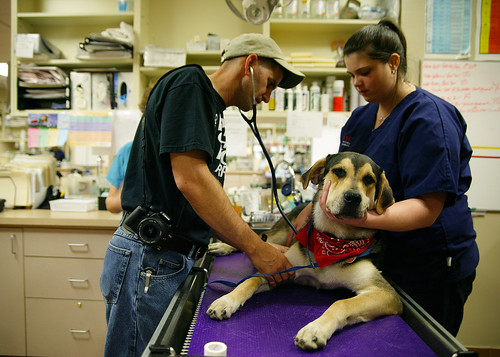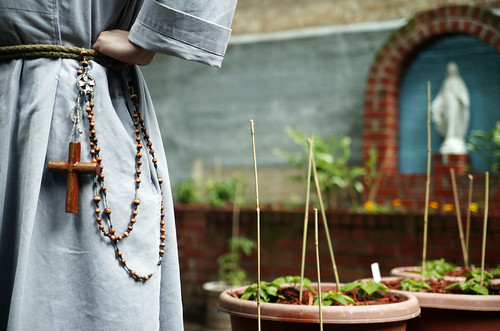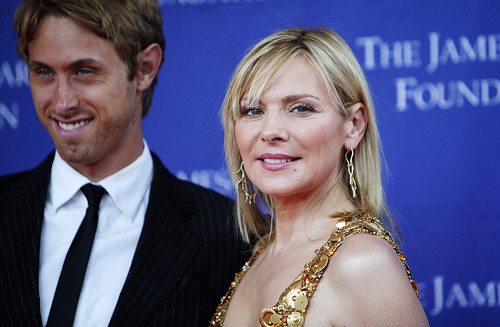
Tuesday, June 17, 2008
Eames Stamps

I couldn't resist buying a few sheets of these Charles and Ray Eames stamps -- now I just need an excuse to send snail mail.
Monday, June 09, 2008
NYDN
And now that that unpleasantness is out of the way, some of the recent work I've done for the New York Daily News:








All Rights Reserved
As promised, I've filed all of my Flickr photos as All Rights Reserved and removed every Creative Commons license save one -- this photo of Ahmadinejad that Wikipedia currently links to. I've been arguing this issue with friends and photographers for a while now -- almost always in favor of CC licensing -- but unfortunately after a couple of bad experiences I'm tempted to agree with those who believe that free photography is bad (or at least easily exploited) photography.
I tend to disagree with most of what Rob Haggart says over at his industry blog, but I found this (albeit snarky) post fairly interesting:
This isn't quite true. In fact, it's fairly easy to find high quality pictures on the internet for free -- and many extremely talented, high-profile photographers release content on Flickr or their websites at no personal cost. For photographers who are just getting their foot in the door, Flickr can be a huge boost, particularly since all sorts of agencies and newspapers have begun to use it as a resource for finding new material. Both The Nation and The Atlantic Monthly actively hunt for material on Flickr, and Barack Obama and Hillary Clinton both have Flickr accounts run by their respective PR staffs.
But then comes Rob's point -- good photographs should be expensive. Given the cost of quality digital photography today (and given that I hope to make a living as a photographer myself), I wholeheartedly agree. But I also think that this should only hold for commercial photography -- newspapers, magazines, ad agencies, and the like. Rob fails to take into account that the Creative Commons license specifically allows for users to stipulate that their material may not be used commercially. There's a big difference between a political pundit posting your photos on his personal blog and a magazine with a subscription base of several hundred thousand swiping your images for print.
What I do find troubling, however, is that there's no way to adequately police the world wide web and prevent 'net users from violating these tenuous copyright laws. For the two or three years that I've been an active user of Flickr, I've been happy to release photos under a Creative Commons Attribution Noncommercial No Derivative Works Share Alike license -- but unfortunately, not everyone understands or is willing to comply with photos that have been posted for conditional use.
So, that's that for now -- I'm sure in another few years when Creative Commons has taken a firmer hold and some of these cases have actually been through a court or two photographers will be better able to protect their intellectual property, but until then...
I tend to disagree with most of what Rob Haggart says over at his industry blog, but I found this (albeit snarky) post fairly interesting:
I think it’s cool that people want to create material and give it away because that’s exactly the value of the material they’re creating. The creative commons license which Larry [Lessig] is a big supporter of was created so people can broadly release copyright restrictions on material they would never profit from. I’ve always had a problem paying for horrible photography and now I know I can get it for free.
High quality photography is still very expensive.
This isn't quite true. In fact, it's fairly easy to find high quality pictures on the internet for free -- and many extremely talented, high-profile photographers release content on Flickr or their websites at no personal cost. For photographers who are just getting their foot in the door, Flickr can be a huge boost, particularly since all sorts of agencies and newspapers have begun to use it as a resource for finding new material. Both The Nation and The Atlantic Monthly actively hunt for material on Flickr, and Barack Obama and Hillary Clinton both have Flickr accounts run by their respective PR staffs.
But then comes Rob's point -- good photographs should be expensive. Given the cost of quality digital photography today (and given that I hope to make a living as a photographer myself), I wholeheartedly agree. But I also think that this should only hold for commercial photography -- newspapers, magazines, ad agencies, and the like. Rob fails to take into account that the Creative Commons license specifically allows for users to stipulate that their material may not be used commercially. There's a big difference between a political pundit posting your photos on his personal blog and a magazine with a subscription base of several hundred thousand swiping your images for print.
What I do find troubling, however, is that there's no way to adequately police the world wide web and prevent 'net users from violating these tenuous copyright laws. For the two or three years that I've been an active user of Flickr, I've been happy to release photos under a Creative Commons Attribution Noncommercial No Derivative Works Share Alike license -- but unfortunately, not everyone understands or is willing to comply with photos that have been posted for conditional use.
So, that's that for now -- I'm sure in another few years when Creative Commons has taken a firmer hold and some of these cases have actually been through a court or two photographers will be better able to protect their intellectual property, but until then...
Subscribe to:
Posts (Atom)



